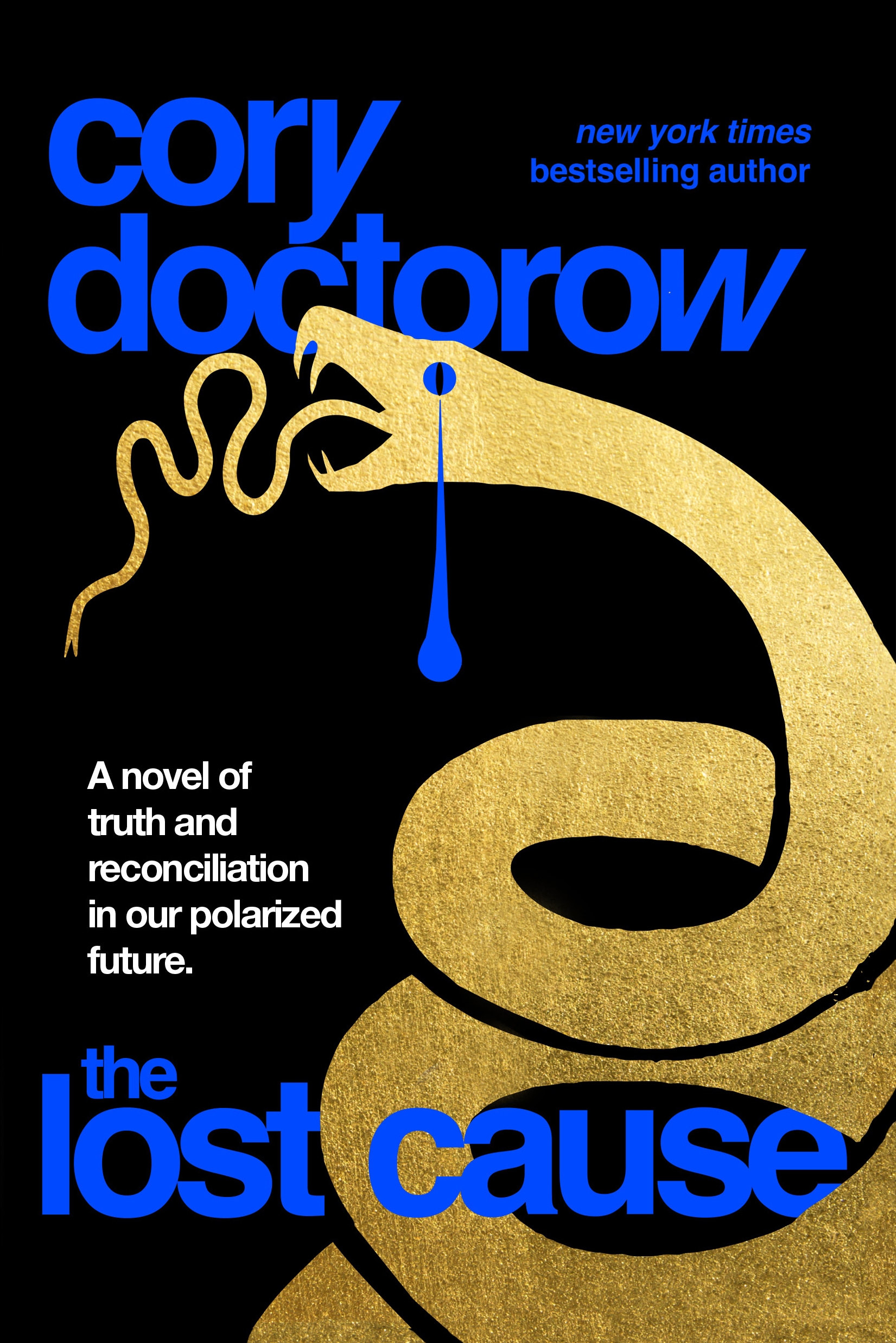Thadd Selden finished reading The Lost Cause by Cory Doctorow
I really enjoyed @pluralistic@mamot.fr‘s latest #solarpunk book, The Lost Cause. I think one of the things Doctorow does well is to imagine a near future that is entirely plausible and doesn’t rely on new magical technology. This book, set a generation into the future, feels like a very plausible path from here to there and that makes it much more engaging than some similar works.
Like his other near-future novels that I’ve read, Doctorow is realistic about political changes and simply extrapolates out the trends that we’re currently seeing. In his vision of the next generation facing the climate emergency there are still hyper-capitalists trying to “fix” everything by sticking their heads in the sand and assuming technology will save us, arch conservatives who want to undo all the progress and close the doors to their increasingly fragile sanctuaries, idealistic progressives going to the front lines to apply real solutions to fix things, and lots of folks who care but are mostly comfortable and willing to let others do the heavy lifting.
The book follows one of those idealistic youths as he navigates reckoning with trauma, family on the other side of the aisle, and figuring out how to truly make a difference in everything from the broader climate crisis to hyper-local political divisions and even violence. It’s a slightly narrow view that only includes the single perspective, but we move along with the protagonist as he tries to understand the people he works with and works against. Because of that we get a lot of reflection on his own trauma and how it shaped him as well as some empathy for those facing the same challenges but from a different perspective.
The Lost Cause is a quick, engaging read. It’s full of more food descriptions than a George R. R. Martin book, highlighting the shifting palates of a generation raised focusing on lower-carbon food sources and diverse communities, so be prepared for it to make you hungry. If you like solarpunk and other near-future fiction that offers a hopeful vision for how we get to and through the looming crises, then The Lost Cause should be on your reading list.

